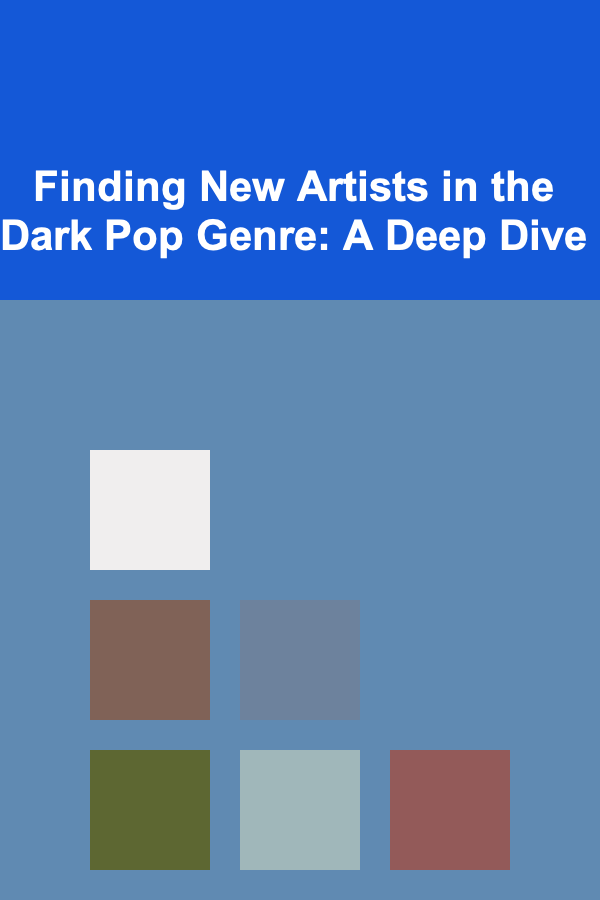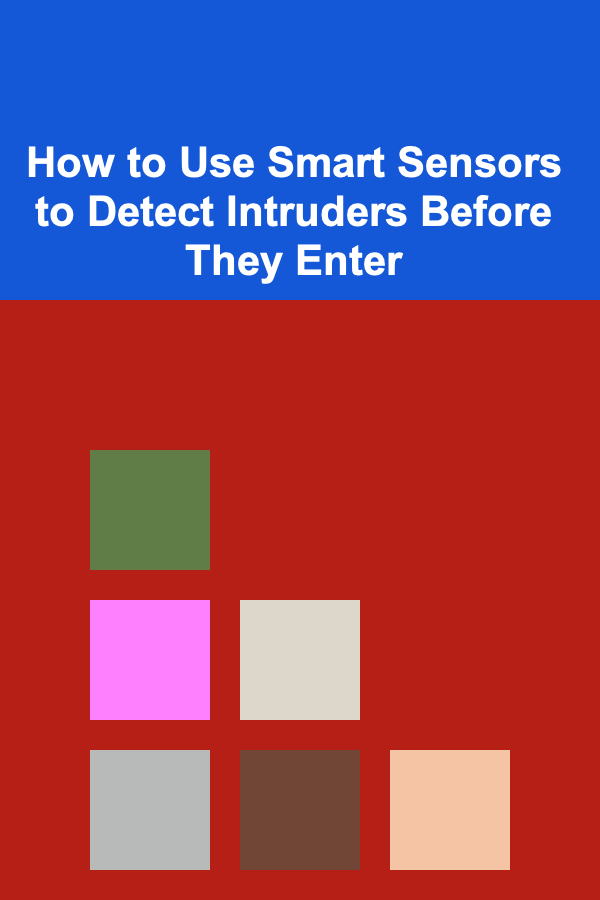
Finding New Artists in the Dark Pop Genre: A Deep Dive
ebook include PDF & Audio bundle (Micro Guide)
$12.99$6.99
Limited Time Offer! Order within the next:

The dark pop genre, with its alluring blend of melancholic melodies, introspective lyrics, and often heavily produced soundscapes, has captivated audiences for years. From the early pioneers blending gothic rock with pop sensibilities to the modern iterations pushing the boundaries of electronic music and alternative aesthetics, dark pop offers a unique listening experience. But with a seemingly endless stream of new music emerging daily, discovering fresh talent within this specific niche can feel like searching for a hidden gem. This article provides a comprehensive guide to navigating the digital landscape and uncovering compelling new artists who embody the essence of dark pop.
Defining Dark Pop: A Starting Point
Before embarking on the search, it's crucial to establish a working definition of "dark pop." The genre is inherently fluid and encompasses a wide range of sonic palettes, making rigid categorization difficult. However, certain key characteristics typically define dark pop artists:
- Lyrical Themes: Often explores themes of sadness, isolation, anxiety, heartbreak, existentialism, and societal critiques. Lyrics are frequently introspective and emotionally raw.
- Melodic Structure: While rooted in pop sensibilities, dark pop melodies tend to be more melancholic and minor-key driven, often incorporating dissonant harmonies or unconventional chord progressions.
- Production Style: Frequently features layered synths, atmospheric textures, heavy basslines, and electronic instrumentation. Producers often employ techniques such as reverb, delay, and distortion to create a sense of depth and unease. A strong emphasis is placed on atmosphere and creating a mood.
- Visual Aesthetic: Artists often cultivate a darker, more enigmatic visual aesthetic, reflecting the themes and mood of their music. This can range from gothic-inspired imagery to minimalist and conceptual art.
It's important to note that artists often blend elements of dark pop with other genres, such as synth-pop, alternative rock, electronic music, and even hip-hop. This hybridity contributes to the genre's constant evolution and presents exciting opportunities for discovery.
Navigating the Digital Music Landscape: Platforms and Strategies
The internet is the primary battleground for discovering new music, and dark pop is no exception. Leveraging the right platforms and employing effective search strategies are essential.
1. Streaming Services: Algorithms and Editorial Playlists
Platforms like Spotify, Apple Music, and Deezer are indispensable tools for music discovery. Their algorithmic recommendation systems analyze listening habits and suggest artists and tracks based on individual preferences. To effectively use these platforms:
- Explore Genre Playlists: Search for playlists specifically labeled "Dark Pop," "Indie Dark Pop," "Alternative Pop," "Gothic Pop," or similar terms. These playlists are often curated by music editors and knowledgeable users, providing a curated selection of established and emerging artists.
- "Radio" and "Mix" Features: Utilize the "radio" or "mix" features offered by each platform. Select a known dark pop artist you enjoy and let the algorithm generate a playlist based on their sound. This can lead to discovering similar artists you might not have encountered otherwise.
- "Fans Also Like" Sections: On artist pages, look for the "Fans Also Like" or similar sections. These sections suggest artists who are popular among listeners of the featured artist, often revealing hidden gems within the dark pop community.
- Follow Relevant Playlisters: Many independent curators and music enthusiasts create and share their own dark pop playlists on these platforms. Find and follow these playlisters to gain access to their curated selections and stay updated on emerging talent. Look for playlisters who actively promote smaller, independent artists.
- Actively Listen and Engage: The more you listen to dark pop music on these platforms, the better the algorithm becomes at understanding your preferences and suggesting relevant artists. Actively "like" songs, save albums, and create your own playlists to further refine the recommendations.
2. Social Media: Hashtags, Communities, and Artist Promotion
Social media platforms like Instagram, Twitter (X), TikTok, and Facebook have become powerful tools for artists to connect with fans and promote their music. They also offer avenues for music discovery:
- Hashtag Searches: Utilize relevant hashtags such as #darkpop, #indiedarkpop, #alternativepop, #gothicpop, #electropop, #newmusic, #musicdiscovery, and #[artistname] (replace with specific artist names). Searching these hashtags can reveal artists who are actively promoting their music and engaging with fans.
- Artist Following: Follow your favorite dark pop artists on social media. They often share music from other artists they admire, collaborate with emerging talent, and post about upcoming releases from their peers.
- Community Engagement: Join online communities and groups dedicated to dark pop music on platforms like Reddit, Facebook, and Discord. These communities often share new music, discuss artists, and offer recommendations.
- TikTok Exploration: TikTok has become a hotbed for music discovery, particularly for shorter, catchy tracks. Explore relevant hashtags and keep an eye out for trending sounds and emerging artists within the dark pop realm. Pay attention to creators who feature dark pop music in their content.
- Targeted Advertising: Keep an eye out for targeted advertisements for dark pop artists, particularly on Instagram and Facebook. These ads are often served to users who have demonstrated an interest in similar music.
3. Music Blogs and Online Publications: Expert Curation and In-Depth Reviews
Music blogs and online publications offer expert curation and in-depth reviews, providing valuable insights into the dark pop genre and highlighting promising new artists. Look for blogs that specialize in alternative music, electronic music, or pop music with a darker edge. Some examples include (but are not limited to):
- Gorilla vs. Bear: Known for its eclectic taste and early adoption of many influential artists.
- Pitchfork: Offers critical reviews and features on a wide range of genres, including alternative and electronic music.
- Stereogum: Covers indie and alternative music with a focus on emerging talent.
- Consequence of Sound: Provides news, reviews, and features on music, film, and television.
- All Music: A comprehensive database of music information, including artist biographies, album reviews, and song details.
- Various Indie Music Blogs: Search for smaller, independent music blogs that focus on specific subgenres or regions. These blogs often provide a more personal and curated approach to music discovery. Use search terms like "indie music blog," "alternative music blog," "electronic music blog," etc., along with keywords like "dark pop," "gothic pop," or "synthwave."
Pay attention to blogs that feature interviews with artists, as these interviews often reveal insights into their influences and creative processes. Also, look for blogs that publish "best of" lists or year-end reviews, as these lists can highlight some of the most promising new artists of the year.
4. YouTube: Visuals and Independent Creators
YouTube is a valuable resource for discovering new dark pop artists, particularly those who prioritize visuals and artistic presentation:
- Official Music Videos: Search for official music videos from dark pop artists. Pay attention to the "recommended videos" section, as it often suggests similar artists.
- Lyric Videos and Visualizers: Many dark pop artists create lyric videos or visualizers to accompany their music. These videos can be a great way to discover new tracks and get a sense of the artist's aesthetic.
- Independent Music Channels: Numerous independent music channels on YouTube curate and promote emerging artists across various genres. Look for channels that specialize in dark pop, synthwave, or alternative electronic music.
- DIY Music Promotion: Many independent artists actively promote their music on YouTube, creating their own music videos and uploading their tracks. Searching for relevant keywords can lead to discovering these artists directly.
5. Bandcamp and SoundCloud: Independent Artists and Emerging Scenes
Bandcamp and SoundCloud are platforms that cater to independent artists and emerging music scenes. They offer a more direct connection between artists and fans, and they often feature music that is not available on mainstream streaming services:
- Bandcamp Exploration: Bandcamp is a great place to discover independent dark pop artists and support them directly. Use the platform's tag system to search for relevant genres and subgenres, and browse the "discover" section to find new music based on your listening habits.
- SoundCloud Exploration: SoundCloud is another platform that is popular among independent artists and emerging scenes. Search for relevant keywords and explore user playlists to discover new dark pop tracks. Pay attention to artists who are gaining traction on the platform, as they may be on the cusp of breaking through to a wider audience.
- Following Artists and Labels: Follow your favorite dark pop artists and labels on Bandcamp and SoundCloud to stay updated on their new releases and discoveries.
6. Live Music Venues and Festivals: Experiencing the Music Live
While online discovery is essential, experiencing dark pop music live can provide a deeper connection to the genre and reveal new artists you might not have encountered otherwise:
- Local Venues: Attend shows at local venues that feature alternative music or electronic music. Keep an eye out for emerging dark pop artists who are touring in your area.
- Music Festivals: Attend music festivals that feature a diverse range of genres, including alternative, electronic, and pop music. Explore the festival lineup and discover new dark pop artists you might not have heard of before.
- Networking: Attend music industry events and conferences to network with artists, producers, and other professionals. This can be a great way to discover new talent and gain insights into the dark pop scene.
Refining Your Search: Advanced Strategies and Considerations
Once you've established a foundation for music discovery, you can refine your search by employing more advanced strategies and considering specific factors:
1. Identifying Subgenres and Influences
Dark pop is a broad genre, and understanding its various subgenres and influences can help you narrow your search and discover artists who align with your specific tastes. Some subgenres and influences to consider include:
- Synth-Pop/Electro-Pop: Emphasizes electronic instrumentation, catchy melodies, and futuristic aesthetics. Artists like CHVRCHES and Purity Ring exemplify this subgenre.
- Gothic Pop: Draws inspiration from gothic rock and darkwave, featuring atmospheric textures, melancholic melodies, and often darker lyrical themes. Artists like Chelsea Wolfe and Drab Majesty blend gothic elements with pop sensibilities.
- Dream Pop/Shoegaze: Characterized by ethereal vocals, shimmering guitars, and atmospheric textures. Artists like Beach House and Cocteau Twins (while not strictly dark pop, are influential) share common ground.
- Industrial Pop: Incorporates elements of industrial music, such as harsh synths, distorted vocals, and rhythmic noise. Artists like HEALTH and Sleigh Bells blend industrial sounds with pop structures.
- Darkwave: A broader genre that encompasses various dark electronic music styles, including synthwave, coldwave, and minimal wave. These styles often influence dark pop production and aesthetics.
2. Analyzing Production Styles and Techniques
Pay attention to the production styles and techniques employed by dark pop artists. Identifying specific producers or studios that are known for their work in the genre can lead to discovering new talent. Consider the use of:
- Synthesizers: Identify specific synthesizer models or sound design techniques that are characteristic of dark pop.
- Effects Processing: Analyze the use of reverb, delay, distortion, and other effects to create atmosphere and texture.
- Mixing and Mastering: Pay attention to the overall sonic quality of the music and identify producers or engineers who are known for their work in the genre.
3. Following Record Labels and Production Companies
Many record labels and production companies specialize in dark pop or related genres. Following these labels and companies can be a great way to discover new artists and stay updated on emerging trends. Examples include:
- Sacred Bones Records: Known for its roster of experimental and darkwave artists.
- Dais Records: Specializes in industrial, darkwave, and experimental music.
- Italians Do It Better: Known for its synth-pop and dream pop artists with a retro aesthetic.
- (Check for smaller, independent labels specializing in niche electronic genres)
4. Utilizing Music Recognition Apps
Music recognition apps like Shazam and SoundHound can be helpful for identifying songs you hear in public places or online. If you hear a track that you like but don't know the artist, use one of these apps to identify it.
5. Cross-Referencing Artists and Influences
Explore the influences and inspirations of your favorite dark pop artists. Many artists cite their influences in interviews or on their social media profiles. By researching these influences, you can discover new artists who share similar inspirations.
6. Be Open to Experimentation and Serendipity
The most important aspect of music discovery is to be open to experimentation and serendipity. Don't be afraid to step outside of your comfort zone and explore different genres and artists. You never know where you might find your next favorite dark pop artist.
Conclusion: The Ongoing Quest for Dark Pop Innovation
Finding new artists in the dark pop genre is an ongoing quest. The genre is constantly evolving, with new artists emerging and pushing the boundaries of sound and aesthetics. By utilizing the strategies and resources outlined in this article, you can navigate the digital landscape and discover compelling new talent who embody the essence of dark pop. Remember to stay curious, be open to experimentation, and support the artists you enjoy. The dark pop scene thrives on innovation and collaboration, and your active participation helps to shape its future. The key is to actively seek and engage - passively listening will only get you so far. Embrace the darkness, and let the music guide you.

How to Handle Incoming Paperwork to Reduce Clutter
Read More
How to Plan for Bad Weather: Backup Ideas for Outdoor Reunions
Read More
How to Use Smart Sensors to Detect Intruders Before They Enter
Read More
Understanding Job Offers: What to Look For Beyond Salary
Read More
How To Play Sandbox Games for Creative Freedom
Read More
How to Discover Lesser-Known Masterpieces
Read MoreOther Products

How to Handle Incoming Paperwork to Reduce Clutter
Read More
How to Plan for Bad Weather: Backup Ideas for Outdoor Reunions
Read More
How to Use Smart Sensors to Detect Intruders Before They Enter
Read More
Understanding Job Offers: What to Look For Beyond Salary
Read More
How To Play Sandbox Games for Creative Freedom
Read More